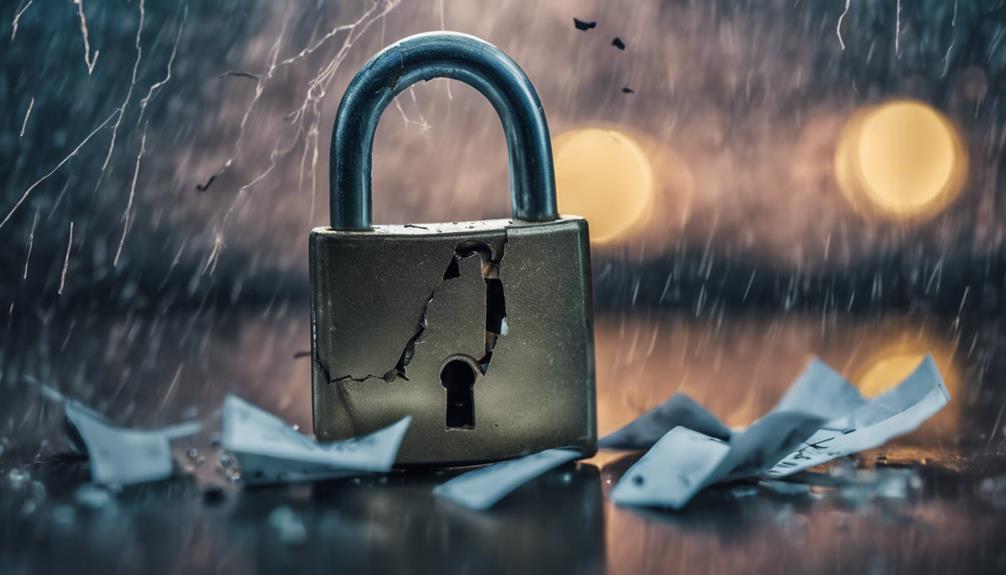Cheaterville, a website launched in 2013, has sparked controversy for its anonymous posting feature, allowing users to expose alleged infidelity. This has led to legal battles, raising critical questions about privacy, free speech, and accountability in the digital age. The website's feature has sparked lawsuits seeking to uncover anonymous posters' identities, highlighting the tension between freedom of speech and the right to privacy. As the debate unfolds, the importance of accountability and responsibility in the digital age comes to the forefront, and it's essential to explore the implications of online exposure and its emotional toll.
Key Takeaways
• Cheaterville, launched in 2013, allows anonymous users to expose alleged infidelity, sparking controversy over privacy invasion and freedom of speech.
• The website has led to legal battles over false or damaging posts, with lawsuits seeking to uncover anonymous posters' identities.
• The platform's anonymity feature has come under scrutiny, raising questions about accountability and responsibility in the digital age.
• Cheaterville's exposure of affairs has sparked debates about the consequences of online shaming, including emotional distress and devastating impacts on mental well-being.
• The website's existence highlights the need for a balance between freedom of speech and defamation protection, with severe consequences for false accusations.
Exposing Infidelity in the Digital Age
In the digital age, Cheaterville, a website launched in 2013, has taken the concept of whistle-blowing to a whole new level by allowing individuals to anonymously expose those having affairs with people in committed relationships. This bold move has sparked controversy, with some hailing it as a necessary evil and others condemning it as an invasion of privacy.
The website's motto, 'Don't be the last to know,' underscores its mission to inform partners of their significant others' infidelity. Users can search for any name to check for a cheating history, and all posts are anonymous. With its growing popularity, Cheaterville has become a platform for people to share their experiences and warn others of potential cheaters.
As a result, it has become a hub for those seeking to uncover the truth about their partners.
Legal Fallout From Anonymous Posts

Cheaterville's anonymity feature has sparked a wave of legal battles, as individuals like the Powers, who claim to be victims of false or damaging posts, seek to uncover the identities of anonymous posters. The Powers' lawsuit against the anonymous poster has set a precedent, with their attorney citing a previous case involving Roommates.com. However, Cheaterville's attorney argues that the Roommates decision doesn't apply to their case.
The legal battle highlights the tension between freedom of speech and the right to privacy. As more individuals come forward with similar claims, Cheaterville's anonymity feature is under scrutiny. The legal fallout from anonymous posts has sparked a debate about accountability and responsibility in the digital age.
The Emotional Toll of Online Exposure

As the Powers' case illustrates, the emotional toll of online exposure can be devastating, leading to feelings of paranoia, anger, and betrayal that can permeate every aspect of one's life. The public outing of alleged infidelities on Cheaterville can lead to a downward spiral of emotional distress, as individuals struggle to cope with the sudden loss of privacy and reputation.
Winona Powers' admission of living a 'nightmare' since discovering the post underscores the profound impact of online exposure on mental well-being. The emotional toll can be so severe that it prompts legal action, as seen in the Powers' lawsuit, highlighting the urgent need to address the psychological consequences of online exposure.
Cybersex and the Blurred Lines

Recognizing the potential dangers of cybersex and taking steps to protect oneself is crucial in today's digital age. The rise of cybersex has blurred the lines between fantasy and reality, creating a complex web of virtual relationships that can have devastating consequences in the real world.
With the proliferation of social media and online platforms, it's easier than ever to engage in cybersex, often under the guise of anonymity. However, this anonymity can lead to a false sense of security, causing individuals to engage in risky behavior that can spill over into their real lives.
The consequences of cybersex can be severe, including damaged relationships, emotional distress, and even physical harm. As the lines between fantasy and reality continue to blur, acknowledging the potential dangers of cybersex and taking steps to protect oneself from its consequences is vital.
Accountability in the Digital Realm

In the digital age, where online anonymity can facilitate reckless behavior, holding individuals accountable for their actions in the virtual world is essential to maintaining a sense of responsibility and respect for others. This is particularly vital in cases like Cheaterville, where anonymous posts can have devastating consequences. Accountability in the digital domain requires a fine balance between freedom of speech and protection from defamation.
| Aspect | Importance | Challenges |
|---|---|---|
| Anonymity | Allows for honest reporting | Facilitates reckless behavior |
| Accountability | Maintains respect for others | Difficult to enforce online |
| Consequences | Deters irresponsible behavior | Can be severe for false accusations |
Frequently Asked Questions
Can Cheaterville Be Held Liable for Defamatory Posts on Their Website?
Cheaterville's liability for defamatory posts remains uncertain. As a platform, it claims immunity under the Communications Decency Act, which shields websites from liability for user-generated content.
However, the Powers' lawsuit argues that Cheaterville is responsible for facilitating and profiting from defamatory posts.
The case's outcome may set a precedent for online platforms' accountability for user-submitted content, potentially impacting the website's business model and users' ability to anonymously expose alleged infidelity.
Are There Any Legal Consequences for Anonymous Posters on Cheaterville?
In the domain of online infidelity, anonymous posters on Cheaterville may face legal consequences. While Cheaterville refuses to disclose posters' identities, a court can subpoena the website for IP addresses, potentially leading to legal action against the poster.
Additionally, if a post is deemed defamatory, the poster may be held liable for damages, as seen in the Powers' lawsuit. Ultimately, anonymity on Cheaterville isn't a guarantee of impunity.
Can Users Request Removal of Posts About Them From Cheaterville's Database?
Users can request removal of posts about them from Cheaterville's database, but it comes at a cost. The Powers, a California couple, had to pay $200 to an independent company to remove the post about the husband's alleged affair.
Cheaterville refuses to disclose the poster's identity, providing only the IP address. This lack of cooperation forces users to take matters into their own hands, incurring additional expenses to regain control over their online reputation.
Does Cheaterville Verify the Accuracy of Affair Allegations Before Posting?
Cheaterville doesn't verify the accuracy of affair allegations before posting, relying on user-submitted content. This approach raises concerns about false accusations and the potential for misuse.
The website's anonymity feature allows posters to remain unnamed, making it challenging to hold individuals accountable for false claims. As a result, Cheaterville has faced criticism for its lack of accountability and potential harm to innocent individuals.
Can Cheaterville Be Used to Blackmail or Extort Individuals Accused of Cheating?
Cheaterville's anonymous posting system raises concerns about potential blackmail or extortion. Given the website's lack of verification processes, individuals accused of cheating may be vulnerable to false accusations or coerced into admitting infidelity.
The platform's anonymity and lack of accountability mechanisms create an environment where malicious users could exploit the system for personal gain. This vulnerability undermines Cheaterville's stated mission of promoting honesty and transparency in relationships.
Conclusion
As the Cheaterville saga unfolds, it's clear that digital transparency has a double edge. Take, for instance, the case of Sarah Johnson, whose husband's alleged infidelity was exposed on the website, leading to a very public divorce.
The repercussions were devastating, with Sarah's teenage children facing ridicule at school. As the legal battle rages on, it's evident that the boundaries between privacy and public interest are increasingly blurred, leaving individuals like Sarah to pick up the pieces of their shattered lives.









